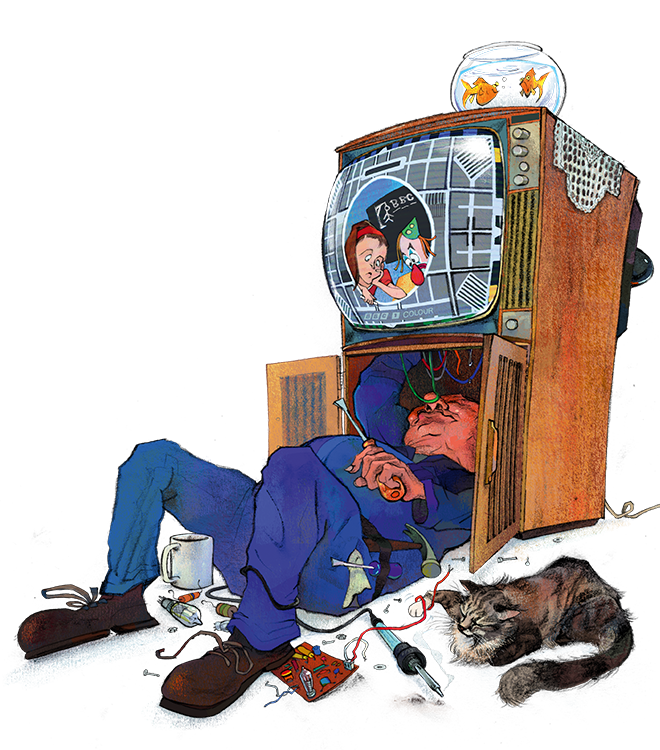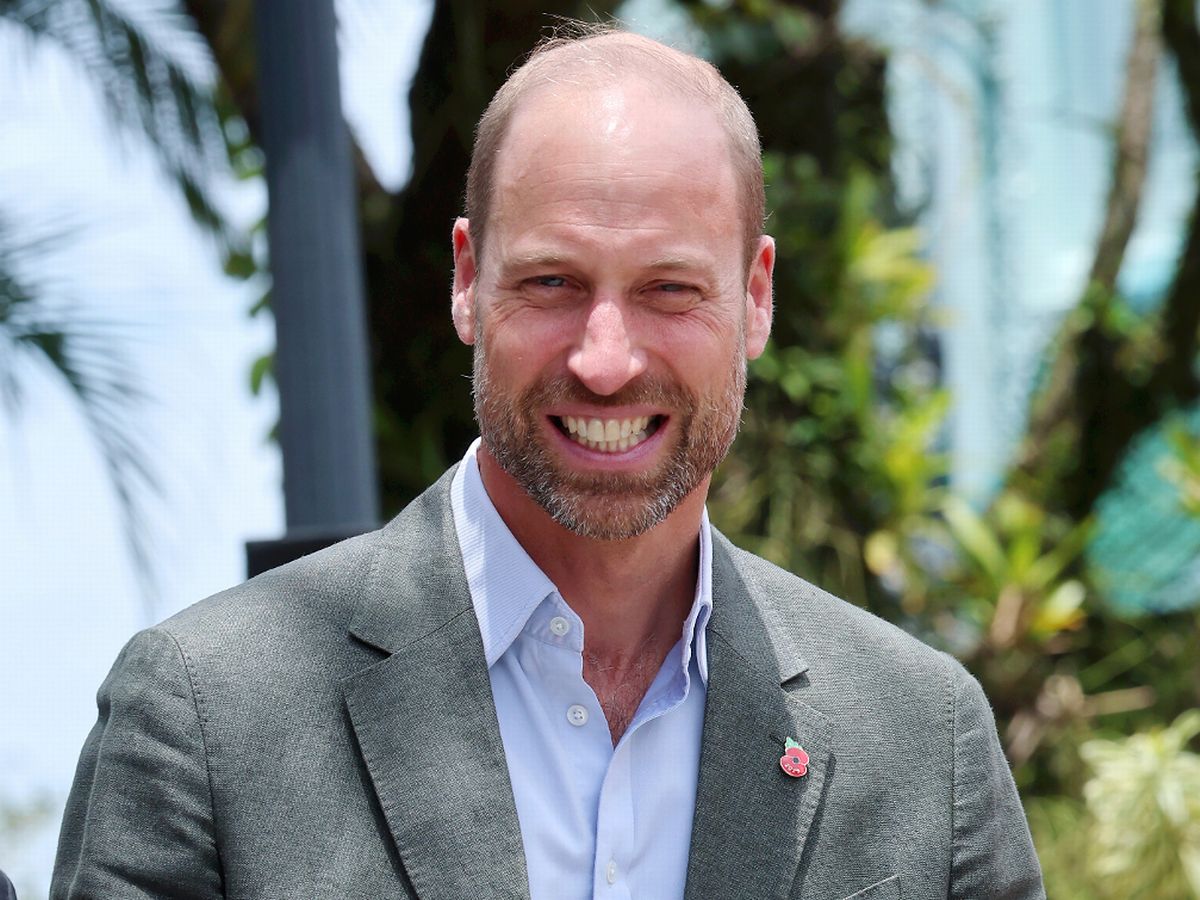Copyright spectator

Assuming the BBC is still in existence by the time you read this, the scale of the task facing the next director-general would have been evident by listening to the output on Monday, the day after Tim Davie and Deborah Turness resigned. This was an organisation in utter denial. It began with Nick Robinson, puffed up with even more pompous self-regard than normal, treating Today listeners to a psychedelic monologue in which he disappeared down several capacious rabbit holes, jabbering about a sort of palace coup at the BBC, an assault by sinister right-wing forces. In doing this, Nick handily confirmed the case for the prosecution – something he would have realised, had he stopped to think about the logical conclusion formed by anyone hearing his grandstanding: the BBC is a tad partisan. Only one morning newspaper had headlines about this supposed right-wing coup – and you can guess which one it was. Today, as ever, following the Guardian’s agenda. The problem with the sinister right-wing forces argument is that it wasn’t sinister right-wing forces which presented a dossier to the BBC board cataloguing serial bias over a number of key issues, but the BBC’s own editorial adviser at the time, Michael Prescott. But nope, the corporation remained in denial, as it has been following the publication of a host of previous reports into its institutional bias, not all of them conducted by senior members of the Tonton Macoute. On Monday morning, the denial and bias continued until it became a kind of moronic fugue – with Today interviewing (why, Lord, why?) David Yelland and the former Radio 4 controller Mark Damazer. All admitted that mistakes had been made but there was no inherent bias in the corporation, heaven forfend. That glaring lack of awareness was present in the resignation letter of Turness, the disgraced head of news: not a soupçon of contrition nor an acknowledgement of how the BBC and its news coverage is viewed by an ever-growing tranche of people, not just people in black shirts with weedkiller stocked up in their basements. And yet on social media, even members of the Facebook group BBC Alumni, usually the most stoic defenders of Auntie, were asking: when did the rot set in? How could it have fallen so low so quickly? A former exec texted my Times Radio show, aghast that anybody within the BBC could have defended that edit in the Panorama report of Donald Trump’s speech on 6 January 2021. ‘It is so basic,’ the exec observed. The former Newsnight stalwart Mark Urban weighed in with an acute analysis of how the authoritarian identitarian monkeys have swamped the production teams, objecting if it is ever suggested that someone with ‘problematic’ opinions might be invited on to a programme – such as J.K. Rowling, or me. And yet within the BBC there seemed to be a unanimity of denial – only once people have left could they smell the rotting fish. It rather reminded me of George Orwell’s paradox about the proles in Nineteen Eighty-Four – until they become conscious they cannot rebel; but until they rebel they cannot become conscious. I listened to Damazer on Monday morning. He was beside himself with fury at what the bastards were doing to his beloved BBC. This is the chap who, aghast at the Brexit vote, wrote a long article for Prospect arguing that the Remainer side during the debate had not been given a fair crack of the whip because the BBC was so committed to giving equal prominence to both views that it had given ‘credence to nonsense’. I remember him from before then, too, when he was one of my many bosses when I was editor of Today. On one occasion in 2000 he summoned the programme editors together to deliver a gentle lecture on how the forthcoming US election must be reported fairly and impartially. He did so sitting at a desk in his office, in front of a wall plastered with posters from Democrat election campaigns, some of which he had worked on. So they understand bias as an abstract idea, but they do not understand that the bias is them. The BBC was pro-liberal-left back when I worked for it, but not like it is today. Still, I remember times when my jaw dropped at the transparency of the bias. For example, a clever old cove called Lord Pearson of Rannoch did some statistics which proved that we gave much less airtime to anti-EU politicians than we did to those who were supporters of the institution. I mentioned these figures to a senior editorial executive, who shrugged and said: ‘What you have to understand, Rod, is that these people are mad.’ It shocked me then, but I’m not sure why. In an organisation where everyone thinks the same way, it is hardly a surprise that a dissenting view might be thought of as deranged. I do not know a single person who works, or worked, for the BBC who voted Leave. Not one. Doesn’t that in itself suggest there is a problem of recruitment? Shouldn’t the execs think it needs addressing? Nah. Another executive editor suggested to me, in 1998, that we ought to lay off criticising the government because they’d just been elected and people were ‘very happy’ with them. And there was a courageous reporter of Asian heritage, Barnie Choudhury, who delivered a report which said that there were ‘no-go areas’ for white folk in Oldham. A brilliant piece of reporting, but Barnie got dog’s abuse from his own colleagues. Since then, it has got much worse. It has been captured by the identitarian left and on every issue in the culture wars is firmly in that camp. One of the issues raised in Prescott’s dossier was the censoriousness of the BBC’s LGBTQ desk – how it kept stories that were critical of the transgender lobby’s demands off the airwaves. I don’t doubt for a moment that’s true – but the real question is, why does the BBC have a LGBTQ desk? Nobody else does, not even the Guardian. The BBC has two main problems. First, it has a workforce which is almost monocultural, incapable of seeing that their worldview is political. They see it instead as an expression of civility and decency and those who disagree with them as beyond the pale. The second problem is more important and was the reason Prescott leaked his lengthy memo: the BBC execs have become immune to all criticism and simply ignore it. They hunker down and continue doing exactly the same thing, dismissing all objection as mischief-making and repeating the mantra: we are not biased. They have had a lot of practice in this. Countless reports have been published which suggest that, au contraire, the BBC is indeed biased (even if it doesn’t always mean to be) and present the evidence. Never mind that Lord Pearson of Rannoch – that was done at the instigation of the Referendum party and Tory Eurosceptics. Let’s go back to 2007 and the Tait report. Headed by Richard Tait, a BBC trustee and former boss of ITN, this report concluded that the BBC was prone to institutional bias, particularly on ‘single-issue’ topics, attributing this to a prevailing ‘liberal consensus’ within the organisation. One of the points made was that those working for the corporation should be conscious of their own political opinions, that no one approaches a story entirely neutrally. Has this lesson been absorbed, do you think? Before that there was the Wilson report (2005) into the BBC’s coverage of the European Union, which concluded that ‘although the BBC wishes to be impartial in its news coverage of the EU, it is not succeeding’. Then in 2018 the Institute for Economic Affairs examined a perceived lack of balance regarding Brexit on the BBC’s Question Time and Any Questions? and concluded: ‘The imbalance on the two programmes is substantial, consistent and at odds with public opinion.’ Have you noticed, following that report, a sea change in the way the Beeb goes about reporting the ramifications of Brexit? Time and again the corporation executives have been told about the egregious bias within the BBC, as reflected on air. And at every single juncture they have shrugged their shoulders and done nothing, just as they are doing now – even as Trump’s lawyers are busy drawing up that $1 billion writ. Still in denial, they slouch onwards towards extinction, convinced of their own rectitude, still certain that everything they are doing is fine and that everybody else is wrong.



